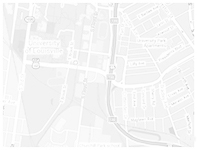Online Etiquette
ONLINE ETIQUETTE
By Stuart Esrock, Ph.D.
With more virtual interviews for full-time positions and internships, plus more remote work positions, your communication techniques and style in the online environment are more important than ever. But an assistant director at the UofL University Career Center warns that many students become complacent about their virtual communication habits. That said, Rosie Shannon says practice makes perfect and that by being conscious about Internet Etiquette or “Netiquette,” you can develop a style that will enhance your ability to communicate and reflect well on your persona.
Shannon says the first rule of Netiquette is to be nice. “Remember that whatever you send from your keyboard or your phone is still an extension of you, even though you're not with others in person. So, be kind, courteous, and respectful. It’s just as important to show good manners online as it always has been.”
You should avoid saying something online that is negative. “This includes everything—about your employer, your former employer, your boss, your coworkers, instructors, etc...everything and everybody. You never know what may wind up being forwarded, whether it’s intentional or an accidental slip of the finger on the ‘send’ button.” Shannon suggests that if you are unsure of anything you’ve typed, hold it in draft mode and read it later before releasing the email or post. “Doing otherwise could jeopardize your opportunity for a promotion, or worse, your current job.”
Then there is the matter of the lost art of grammar and spelling. “They do matter! Your written communication should be professional and reflect proper writing style. Save written shortcuts and less than stellar grammar for Snapchat and your friends if you must. But follow grammar rules when reaching out to networking contacts and potential employers. And don’t become complacent relying only on spellcheck since, for example, it doesn’t know the difference between ‘there’ and ‘their.’”
Shannon says to keep written communication with your contacts concise and to the point. “Always start your message with a short introduction, main content, and then a quick conclusion which should always include a thank-you.”
Other tips that experts recommend you should think about in the online environment:
- Consider others’ privacy
- Avoid inappropriate material
- Be forgiving
As Shannon points out, if you strive to be consistent with your online communication, your style will not only ensure that your messages are clearly received but that also, those message recipients will think well of you.
Since more of us are using tools like Zoom and Microsoft Teams for work and internship-related projects, in a future article we’ll address the issue of proper behavior during these online meetings. For more reading now on Netiquette and workplace etiquette, check out these links:
- https://achievevirtual.org/7-rules-for-online-etiquette/
- https://www.thespruce.com/courtesy-and-acts-of-kindness-1216892
- https://www.thespruce.com/workplace-etiquette-4127570
And remember that your UofL career centers in the College of Business, Speed School, Law School, and the University Career Center are always there to assist you on workplace-related issues like this. Find your career center here.

